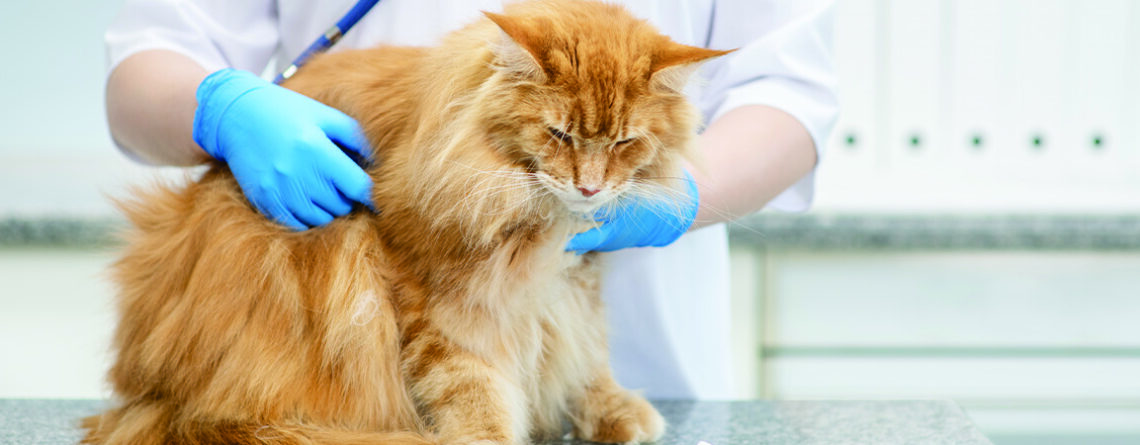When Should I Take My Senior Cat To The Vet?
As your cat gets older, you may start to notice some changes to their health starting to appear. Knowing how to identify symptoms of health issues early on can lead to a quick diagnosis and immediate treatment from your cat’s vet. Once your cat enters the senior lifecycle, it is not unusual for them to develop vision, hearing loss, and maybe even dementia. It’s essential your senior kitty is seen regularly by a vet to guarantee these issues aren’t affecting their overall health and wellbeing.
In this blog post, I will explain what a standard check-up entails, how often they should see the vet, and what signs to watch out for when monitoring your older cat’s health.

Carol Doyle, BSc VN DVM
Carol DoyIe is a small pet veterinarian in a practice in Ashbourne, Co. Meath and is the human companion to her cats, Nala and Donal, two horses - Indie and Bella, and her dog Phoebe.
As a guest blogger and advisor, Carol shares her professional advice with pet owners, answering many of the questions that she gets asked regularly in-clinic.
What Makes My Cat ‘Senior’?
Generally, a veterinarian will deem a cat to be a senior when she is 7-10 years of age. By the time your cat is 10 years or older, you may hear your vet refer to your cat as ‘geriatric’, which simply means that to promote good quality of life and longevity, it is essential to give special consideration to your cat’s health.
The six lifestages of a cat are; kitten (0-6 months), Junior (7 months-2 years), Adult (3-6 years), Mature (7-10 years), Senior (11-14 years), and Super Senior (15 years +).
As many diseases are more prevalent in older cats, your vigilance in observing their day-to-day habits should be intensified after age 7 to be sure problems can be caught and prevented early on.
What Does a Standard Vet Visit Look Like?
When visiting your vets, you may have specific concerns about your senior cat and would like some questions answered. Always make sure that these concerns are all addressed to your satisfaction before the end of your visit.
In general, your vet will likely cover the following:
- History–your vet will discuss with you your cat’s history to establish any modifications to your cat’s lifestyle, such as diet, appetite, habits, mobility issues, attitude etc.
- Physical examination– your veterinarian will assess your cat from the tip of his nose to the end of his tail, examining the ears, eyes, teeth, coat, skin and sanitary areas and checking for any abnormalities or changes since the last visit.
- Routine wellness care–this includes appropriate parasite control, dental care, vaccinations, and weight management and other wellness issues.
- Age-related issues– your vet may talk to you about what to expect or issues to watch out for as your cat ages such as vision or hearing loss, mobility issues or cognitive dysfunction.
- Testing-Depending on your cat’s age and health status, your vet may want to carry out some laboratory tests, even if your cat appears healthy. This may include blood tests, urinalysis, blood pressure, and thyroid hormone level
When To Take Your Senior Cat To The Vet
You should take your senior cat to see the vet at least once a year for a general check-up. It is important to have your veterinarian examine your cat if any of the following symptoms begin to show;
- Weight loss/gain
- Appetite changes
- Lethargy, lack of energy/activity
- Increased thirst/urination
- Yowling when urinating
- Blood in urine
- Reduced mobility
- Reluctance to jump up or down
- Trouble going up or down stairs
- Limping
- Stiffness in the legs (particularly after resting or sleeping)
- Struggling to use or get in their litter box
- Vomiting
- Diarrhoea
- Lumps/bumps you felt when grooming or petting your cat
- Slow healing or no healing of sores
- Bleeding or other discharge from the mouth, nose or anus
- Uncommon/bad body odour
Although old age is not a disease, older patients do require special attention. This is important so that if your cat develops disease or other healthcare problems, it can be picked up and treated as early as possible, thereby maintaining his quality of life for longer.

